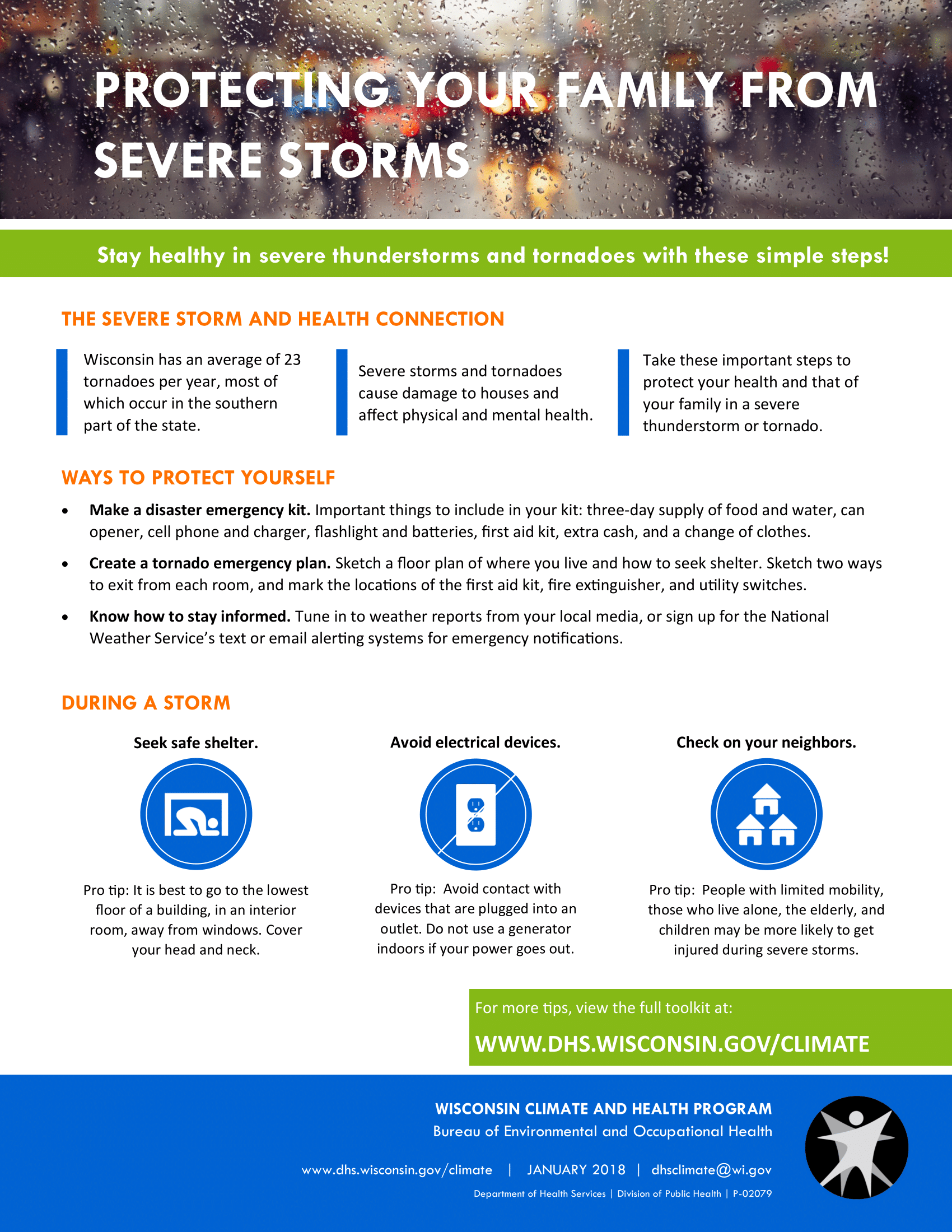Threats to the public are always present. They can be from natural or man-made causes and can lead to the onset of public health incidents. Preparedness is something everyone can do to feel more confident when they do arise. Public Health is here to support, guide, help, and encourage individuals, families, and communities to thrive before, during, and after all hazards.
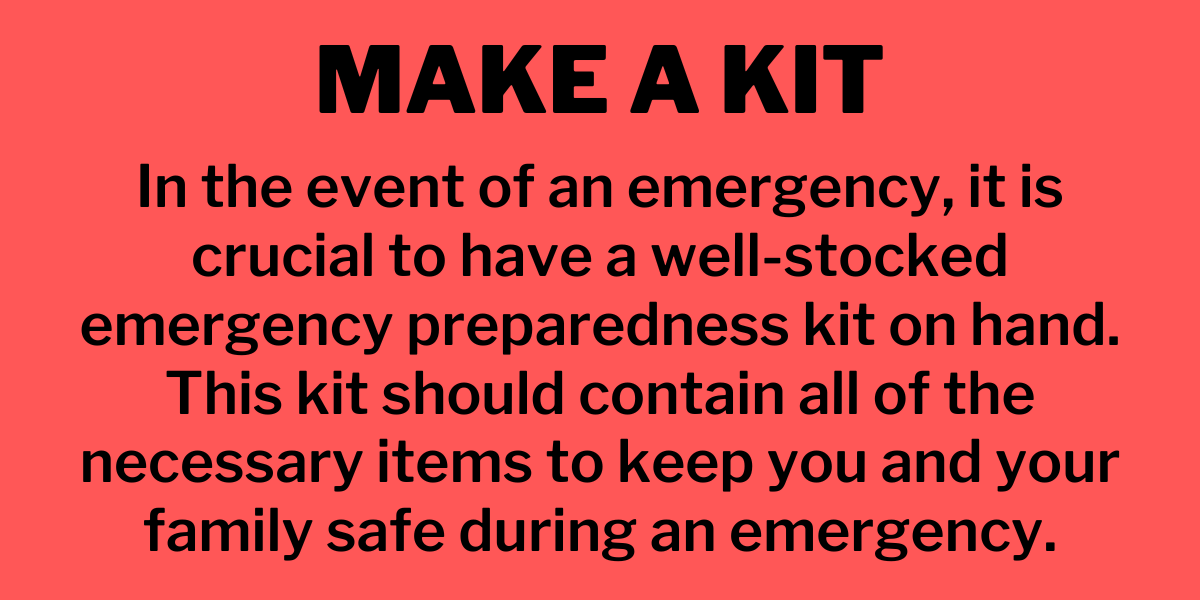 | 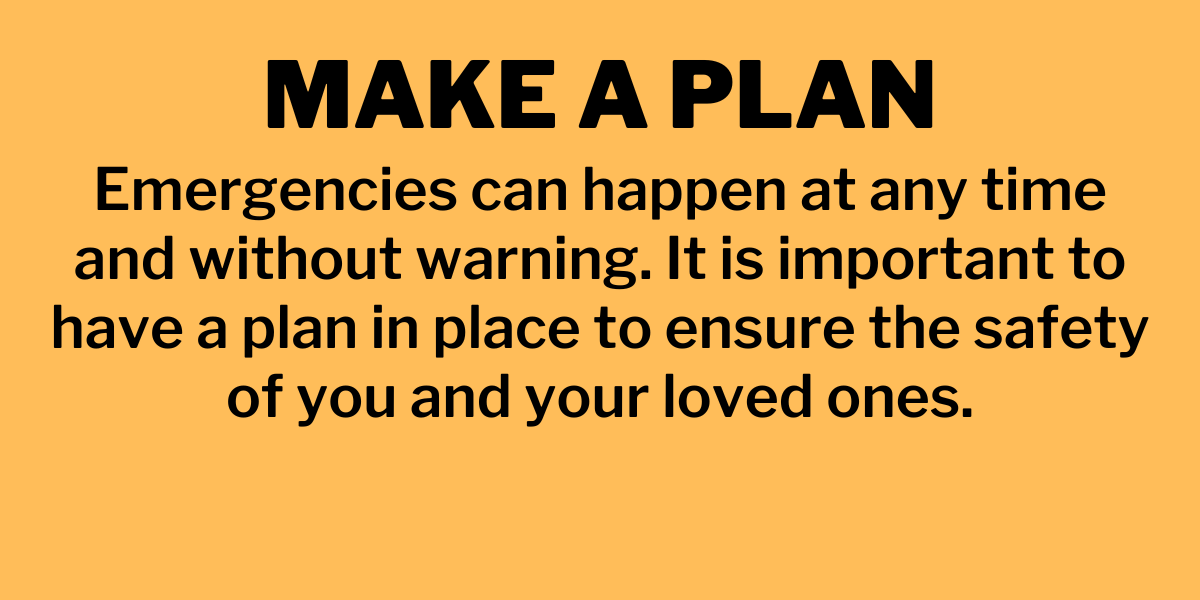 | 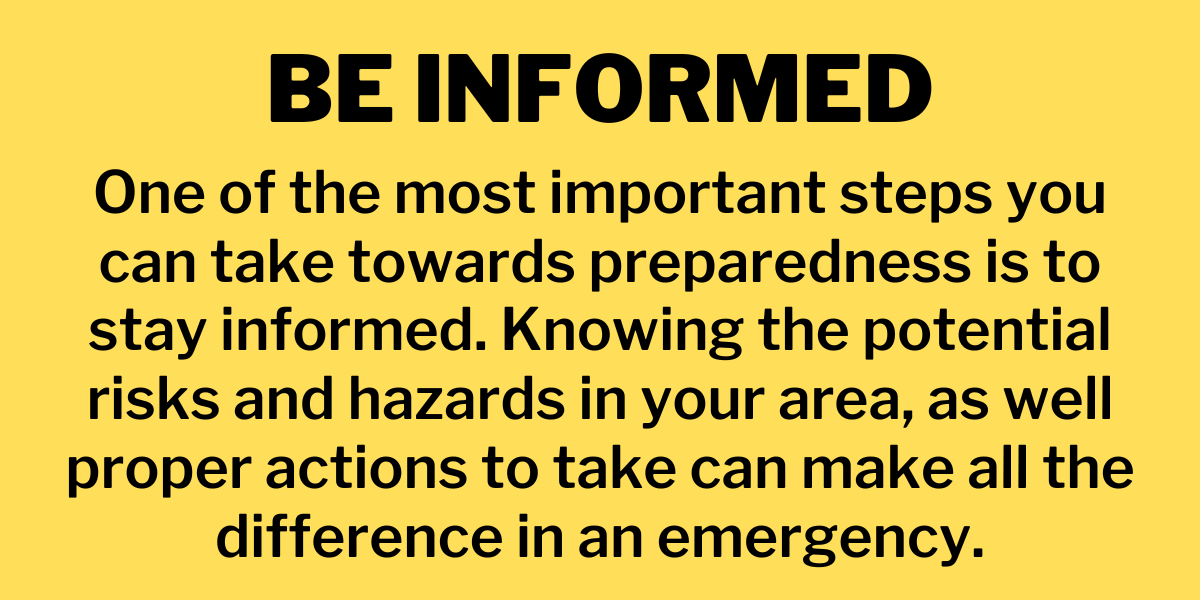 | ||
|
|
|
Additional Tips and Information
- Gather the kit's items in easy-to-carry containers or duffel bags. Put them in an easy-to-reach location.
- Check and update your kit at least once a year.
- Your Emergency Supply Kit should include 3 to 14 days of supplies.
- Remember the Ps: Persons, Pills, Pets, and Pocketbooks.
- Home Emergency Kit
- On the Go Emergency Kit
- Vehicle Emergency Kit
- Pet Emergency Kit
- Family Communications Plan
- Make a Plan (Ready.gov)
- Kids Safety
- Emergency Preparedness for Seniors
- Emergency Preparedness for Special Needs
- Disaster Safety for People with Disabilities
- Preparing for Disasters for People with Disabilities and Other Special Needs
- Emergency Preparedness for Pets
- Get help creating plans for your family, seniors, pets, those with disabilities, and more here.
✔️ BE PREPARED FOR ANYTHING.
Power Outages
Power outages are becoming increasingly common and losing power can be a major inconvenience and even a safety hazard. Here are some tips for staying safe and minimizing the impact of power outages:
- Charge your devices: Keep your cell phone, laptop, and other devices charged in case of an outage. You may also want to invest in a portable power bank or generator to keep your devices powered up.
- Keep your fridge and freezer closed: If the power goes out, keep your fridge and freezer closed to prevent food from spoiling. An unopened fridge should keep food cold for up to four hours, while a full freezer can keep food frozen for up to 48 hours.
- Use alternative light sources: If you don't have access to flashlights or candles, try using solar lights or even your car headlights to light up your home.
- Be aware: Check in on elderly or vulnerable neighbors who may need extra assistance during an outage.
Additional Resources
- Preparedness: Utility Service Interruptions (DHS)
- Power Outages (Ready.gov)
- Wisconsin Public Service Outage Map
- WE Energies Outage Map
- Alliant Energy Outage Map
- Menasha Utilities Customer Service
Severe Weather
Severe weather can strike at any time, so it's important to be prepared. Make sure to have a plan in place for communication and evacuation, and stock up on essential supplies like food, water, and first aid items. Stay informed by monitoring the weather and local news, and follow any evacuation orders or emergency alerts. By taking these steps, you can be ready for whatever severe weather comes your way.
Flooding
Flooding is one of the most common natural disasters that can cause significant damage to your property and even put your life at risk. Don't wait until it's too late and always remember: turn around, don't drown.
Additional Resources
- Floods (Ready.gov)
- Preparing for a Flood
- Cleaning Up Your Home After a Flood (DHS)
- Flood Information (CDC)
- Turn Around, Don't Drown (National Weather Service)
- Turn Around, Don't Drown (weather.gov)
Extreme Heat
If you are under an extreme heat warning you can take these precautions:
- Stay indoors in a location with working air conditioning or go to a location with air conditioning.
- Wear light and loose clothing.
- Stay hydrated.
- If outdoors, seek shaded areas or wear a wide-brimmed hat to protect your face from the sun.
- Avoid overexertion and strenuous activity, especially during the warmest part of the day.
- Know and watch for signs of heat-related illnesses.
- Check on elderly neighbors and those who may be more vulnerable to the effects of extreme heat.
- Need someplace to cool off? Find a cooling location here.
- Download the Heat Safety Tool App here!
- Learn how to stay cool without air conditioning.
Additional Resources
- Heat Safety Tips and Information (weather.gov)
- Urban Heat Information
- Extreme Heat Information (Ready.gov)
- Tips for Preventing Heat-Related Illness (CDC)
- National Integrated Heat Health Information System
Extreme Cold and Winter WeatherHere are some helpful tips to keep in mind:
Additional Resources | 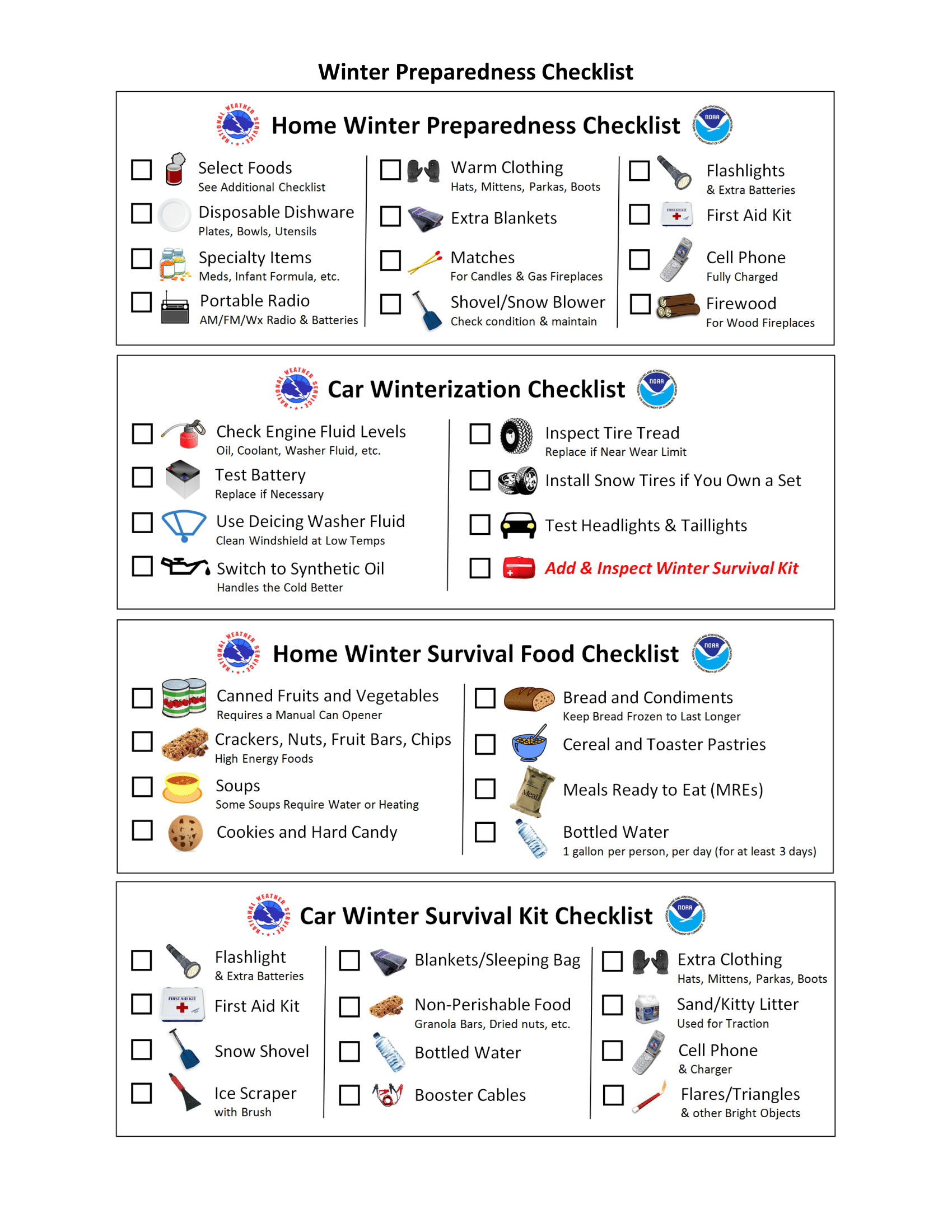 |
Air Quality Index
The Air Quality Index (AQI) is a measurement used to report the quality of the air we breathe. It takes into account several pollutants, such as ground-level ozone, particulate matter, and carbon monoxide, and provides a numerical value to indicate how polluted the air is. The AQI ranges from 0 to 500, with higher values indicating poorer air quality. Understanding the AQI and how it is calculated can help make informed decisions about outdoor activities, especially for people with respiratory problems or other health concerns.
Additional Resources

